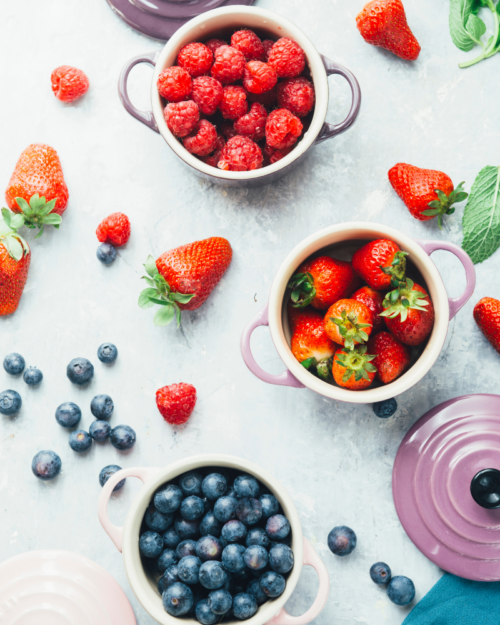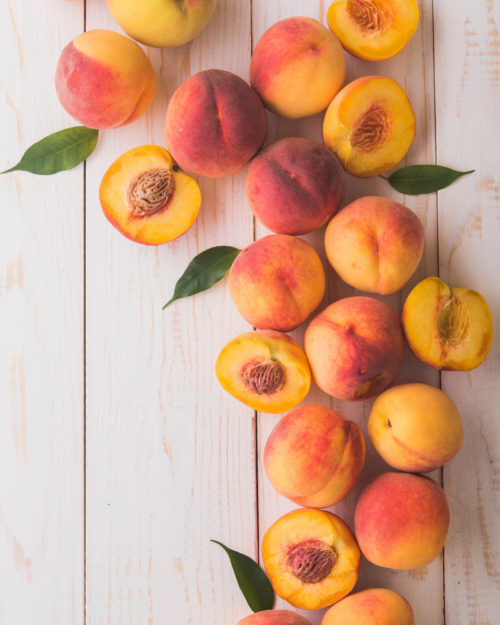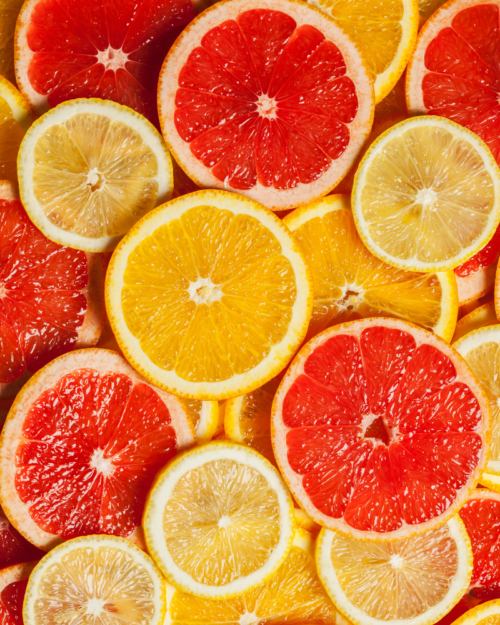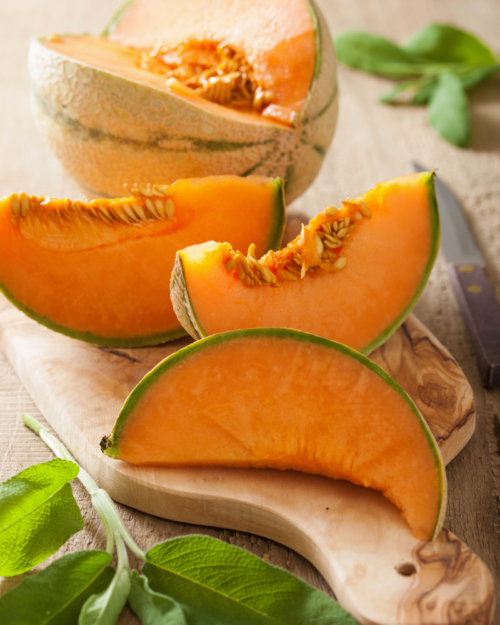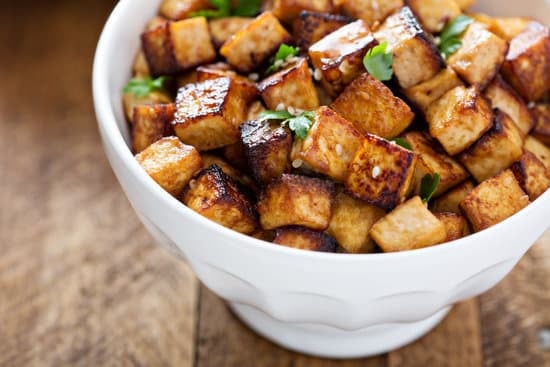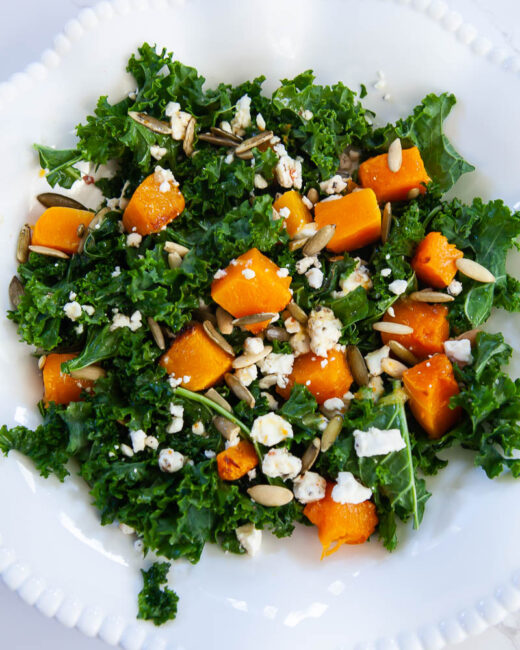Improper storage leads to massive amounts of food waste. So many people are unsure of how to store produce, which often time ends in premature ripening and eventually rotting fruit. Clean fridge, clean mind. If you can see what it is your fridge, you can shop better, use what you have, and save money! No matter what, the best strategy for dealing with fruit it: eat it sooner rather than later.
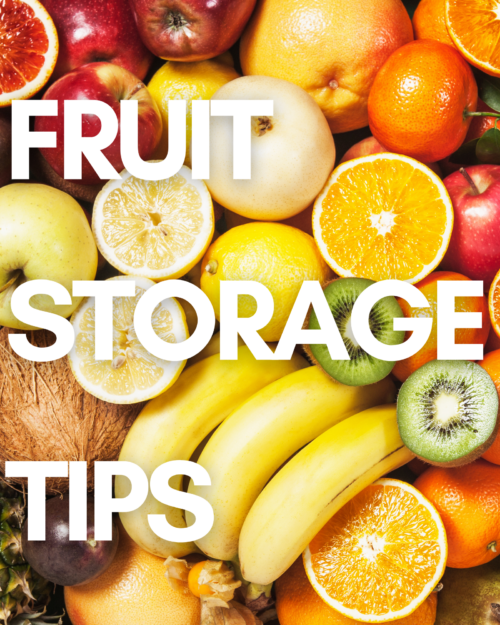
What is Ethylene Gas?
This odorless, harmless gas can affect how your fruits and veggies thrive. This doesn’t have so much to do with vegetables, because they don’t really produce this gas. However, fruits do! Fruits like apples, apricots, pears, and bananas are known to produce the most ethylene gas of any other fruits, but the list is so much longer. Check out this article from One Green Planet on produce that emits the gas and produce that could be affected by it.
If you are trying to preserve your vegetables in the fridge, keep them away from your fruits. This quickly speeds up the ripening process, which then speeds up the rotting process if not eaten quick enough. So, the simple answer is to keep them away from the fruit!
How Soon to Use Fruit?
Following the same schedule as my veggies, this is when I like to take note of what I have and why it is important to have your fridge organized. This is a general rule I like to follow and allows me to stay on top of my fridge and to never over buy what I already have!
- ASAP Vegetables – 2-5 days max
- Soonish vegetables – use within one week
- Sweet time vegetables – 2+ weeks
How to Store Avocado and Tomatoes
Despite what you may think, both avocados and tomatoes are a fruit! Tomatoes fall under the “ASAP” category and avocados fall into the “sweet time” category.
Tomatoes. A special summer fruit and something to be cherished during the warm weather, because tomatoes are not delicious year round (depending where you live). Tomatoes should be stored at room temperature. They will be good for up to 3 days once ripe.
Avocados. The most demanding fruit when it comes to over-ripening, because once they are ripe they will go fast! They can be rock hard for a full week (sometimes 2, if form your tree), so allow them to ripen on the counter. Then, put it in the fridge just before it reaches full ripeness. Need them to ripen sooner? Place them in a paper out of direct sunlight and check on it daily. Use those avocados to make our favorite Shrimp and Avocado Buddha Bowl recipe!
How to Berries
Berries fall into the “ASAP” category. Use them or lose them. Check out our post all about how to use extra berries before they turn on you, so they never get wasted!
Berries. The nutritional benefits of berries are endless, so to waste those delicious, naturally sweet bites would be a shame. Berries are best store in an airtight container in the fridge with a towel underneath to absorb any extra moisture. Check your berries for any moldy soft ones and remove before storing them.
Raspberries and strawberries are probably the most delicate of the berry family, so you will want to eat these in no more than 2 days of buying them. Be sure to not wash your berries until right before consuming them!
Berries are awesome for freezing, so if you feel they are about to turn before you can eat them, bag them up in pop them in the freezer. Use the frozen berries for smoothies, ‘nice cream’, or to make jam!
How to Store Stone Fruit (Peaches, Plums, Nectarines, Pluots, etc.)
Stone fruit should be put into the “asap” category. Eat them once they are ripe or check out how to properly store them as soon as they are ripe!
Stone Fruit. A very season-specific fruit. Whether it be peaches, nectarines, plums, or another fruit in it’s category, there is nothing better than biting into a juicy piece of stone fruit and having it run straight down your chin. However, biting into a mealy piece of fruit is a really big turn off, so let’s quickly touch on how to avoid mealy fruit.
The simple trick to avoid this uncomfortable texture in your fruit is by not letting it get too cold before they are fully ripe. When you expose stone fruit to cold, they become mealy, and feel as if you are biting into a grainy fruit. Now, if that is the case, slice them up and pop them into a bag in the freezer and save for jam or smoothies!
If you bring home unripe stone fruit from the grocery store or farmers market, store them on your counter at room temperature away from sun. They should be ripe within 2 days. Once they are ripe, either eat them right away (best way) or pop them in the fridge, but only put them in when they are ripe. You will know when stone fruit is fully ripe by the sweet, fragrant smell and how it feels. You want a soft, but firm outside that will give a little when you press gently.
You can quickly ripen stone fruit similar to avocados by placing them in a paper bag away form the sun. Check them everyday. If you they get a little to ripe, use them to make this Roasted Peach and Goat Cheese Tart recipe!
How to Store Citrus (Oranges, Limes, Lemons)
Citrus would fall into the “sweet time” category, but there are some really interesting thing about citrus you should know, so keep reading!
Citrus. Citrus and acid bring so much life to your sweet and savory foods as well as hold tons of nutritional value in those sweet tangy bites of freshness. The cool thing about citrus? They actually ripen on the tree so you don’t technically have to wait around to use or eat them.
Citrus can be stored at room temperature for up to 4 days. If you aren’t going to use them up within 4 days, store them in your crisper drawer in your fridge. They should last anywhere form 2 to 4 weeks.
I don’t suggest freezing citrus fruits, but squeezing the juice into jars of ice cube trays are a great way to have citrus on hand at all times! Check out our post all about how to get more juice from your lemons!
How to Store Apples, Pears, and Bananas
Apple take their “sweet time”, while pears fall under”soonish”, and bananas are really confused, but mostly fall under “asap”.
Apples. You know what I’m gonna say don’t you? If you bring your apples home in a plastic bag, ditch it now! Other than that, store them loosely in the fridge. If you wash them before storing, just make sure to completely dry them. They will last a good 3 weeks in the fridge. If you find yourself with too many apples from apple picking or because you thought you’d eat them all, try out this Maple Glazed Whipped Feta and Apple Tart recipe!
Pears. Did you know there are winter and summer pears? Both varieties are picked well before they are ripe and require different times to ripen. Pears need cold storage for a couple of weeks before being set out on the counter to ripen up. Summer pears will only store on the in the fridge for a 2 weeks before they need to be set out on the counter to ripen while winter pears can be in the for up to 4 weeks before being taken out to ripen on the counter. If you won’t be eating them before then, it is best to can them, make jam, dry the fruit, or make this Upside Down Pear Caramel Chocolate Cake recipe!
Bananas. There are no hard and fast rules for bananas. Much like avocados, they kind of do their own thing. Bananas should be stored on your counter top and eaten really as soon as you like the ripeness of them! They can go from green to yellow to brown pretty fast and each stage of the banana has it’s own unique flavor. I prefer a yellow banana that pretty much just turned yellow, because they are sweet, but not too sweet. You can freeze bananas at any stage and use them for ‘nice cream’, smoothies, to coat in chocolate or to save for banana bread. You can also use your brown bananas for delicious banana bread too like this Blueberry Banana Buckle Coffee Cake or this Double Chocolate Banana Bread recipe!
How to Store Melons
All melons fall under the “sweet time” category, which is so fitting because boy are they sweet!
Melons. If you are bringing home already ripe melons from your garden, the store, or farmers market, it is best to store them in your fridge whole or in pieces with the rind still attached. If they can fit, place them in your crisper drawer. If your melons are cut, cover the flesh in plastic wrap and store in the fridge for 3 days at most.
If you are coming home with melons that need to ripen, then great! They can be stored in a cool, dry place. Melons like honeydew and cantaloupe can be stored for up to 10 days, while watermelon can be stored for up to 3 weeks. Watermelons and honeydew are extremely sensitive to ethylene gasses and should be stored away from other fruits that contain high levels of it. Cantaloupes on the other hand, contain a lot of ethylene gas and should be stored away from watermelon and honeydew.


